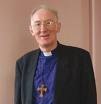A leading Church of England bishop has warned that Anglican clergy may be sued for discrimination if they refuse  to “marry” homosexuals under a proposed law.
to “marry” homosexuals under a proposed law.
Other religious leaders fear that the proposal may force churches that refuse to bless civil partnerships to close.
The Bishop of Winchester, the Right Rev Michael Scott-Joynt said the vote by the House of Lords to lift the ban on civil partnership ceremonies in religious buildings will blur further the difference between marriage and civil partnership.
Since the change in the law signalled on Tuesday means that the Church will be allowed to conduct the ceremonies, but not be compelled to hold them, legal challenges could come under anti-discrimination laws.
Bishop Scott-Joynt said: “I regret enormously the vote.” Referring to the Church’s continuing policy against holding civil partnership ceremonies, he added: “I believe that it will open, not the Church of England but individual clergy, to charges of discrimination if they solemnise marriages … but refuse to host civil partnership signings in their churches.”
Peers voted by 95 to 21 in favour of an amendment to the Equality Bill by the Labour peer Lord Alli that will lift the ban on religious venues and language for civil partnerships.
The Government did not back the amendment, but it is believed that Harriet Harman, the Leader of the Commons, who has been pushing the Bill, will not want to risk the entire Bill by sending it back to the Lords.
The Evangelical Alliance said that some of their churches could be left in the same position as Catholic adoption agencies in England and Wales, most of which have closed or dropped their religious ethos after the Government failed to allow them an exemption, permitting them to refuse to refer homosexual couples for adoption.
The one surviving agency, Catholic Care, took its fight to survive to the High Court yesterday.
Don Horrocks, of the alliance, said: “We understand the Lords’ desire to allow a few liberal religious groups to have freedom to follow their consciences. But other religious groups must not be forced to betray their consciences by facing lawsuits if they fail to allow a civil ceremony.
“This amendment hugely confuses the distinction between civil secular ceremonies and religious ceremonies, as well as the nature of marriage, and has major implications for the UK’s matrimonial laws which haven’t begun to be thought through.”
Consultations are taking place in Church and Government on the way forward.
Derek McAuley, chief officer of the Unitarians, which with the Quakers and Liberal Judaism was seeking the change in order to be able to carry out religious civil partnership ceremonies, accused the bishop of scaremongering.
The Pope is among the many religious leaders who have criticised the UK Government for weakening religious freedom in the name of equality
However, at the launch of the Catholic Bishops’ of England and Wales pre-election document, Choosing the Common Good, The Archbishop of Westminster, the Most Rev Vincent Nichols, insisted that the Pope believed greater equality was “right and proper”.















